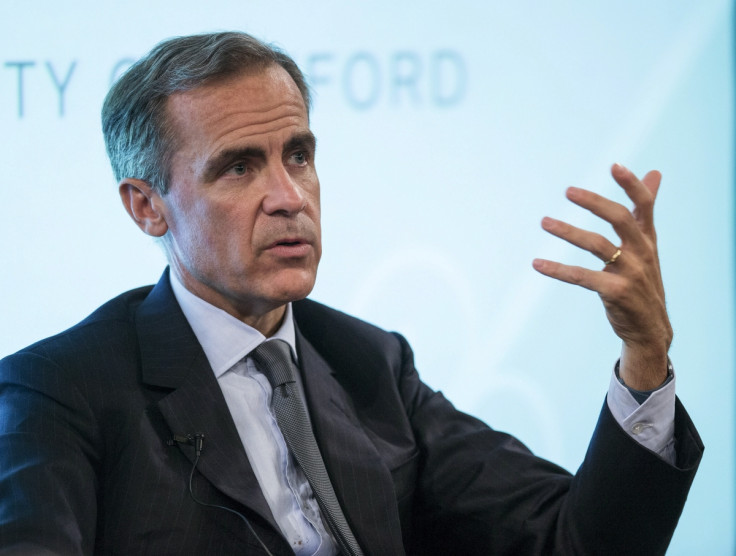EU referendum: Bank of England governor Mark Carney defends Brexit recession warning

Mark Carney, the governor of the Bank of England, has defended a controversial intervention into the 'Brexit' debate in which he warned the UK public that leaving the European Union (EU) could trigger a recession. Speaking on The Andrew Marr Show on Sunday 15 May, Carney said it is the bank's job to "mitigate risks to the UK economy" and that ignoring major problems would solve nothing.
"We don't just have a responsibility to be fair and not pop up after the vote and say 'Oh by the way, this is what we thought at the time'," he asserted. "We also have a responsibility to explain risk and then take steps, because by explaining what we would do to mitigate them we reduce them. That is the key point – ignoring a risk is not to reduce it."
However, Carney refuted allegations he had taken sides in the debate and maintained he is independent of politics. Yet he did claim that Leave campaigners who insist that departing the EU would have no impact on the economic position of the UK were "in denial".
He added: "Our central forecast is for Remain – we always take government policy, that's the standard approach of the Bank of England – but we go into great detail about the risks around that."
As reported by Sky News, campaigners on the Leave side of the debate have called for Carney to resign. Speaking to Sky's Murnaghan programme, former Conservative chancellor Lord Lamont slammed his intervention, saying, "To go out and make yet another intervention… talking about a recession – how can he possibly know whether there will be a recession or not? Forecasts are frequently wrong… hardly ever foresee recessions."
A dangerous intervention
Others have piled on the political pressure. Tory MP Jacob Rees-Mogg told ITV News that Carney should be fired from his position for undermining the independence of the Bank of England. While, as noted by the BBC, former cabinet Iain Duncan Smith said that Carney had abandoned his impartiality by focusing on the implications a Leave vote may have.
Speaking on Sunday Politics, Duncan Smith said: "If you're going to be impartial, if you're going to be fair, then you damn well better say something about what the alternative case is, and the threats of remaining are very clear."
Energy Minister Andrea Leadsom, said Carney's comments could promote "financial instability". She added: "It was an incredibly dangerous intervention. The core job of the Bank of England is to ensure financial stability. That's it. That is their job."
Not everyone was opposed to Carney's statements. Some high-level government officials on the 'Remain' side of the debate welcomed his intervention. George Osborne, Chancellor of the Exchequer, tweeted: "I agree with @bankofengland Governor Mark Carney. Those telling voters EU exit will have no impact on economy are in denial."
In a second tweet, he added: "Mark Carney is clear: growth would be materially slower and inflation notably higher if we vote to Leave"
I agree with @bankofengland Governor Mark Carney. Those telling voters EU exit will have no impact on economy are in denial #Marr
— George Osborne (@George_Osborne) May 15, 2016
The vote on whether the UK should leave or remain a part of the European Union will be put to the public during the referendum scheduled for 23 June.
© Copyright IBTimes 2024. All rights reserved.






